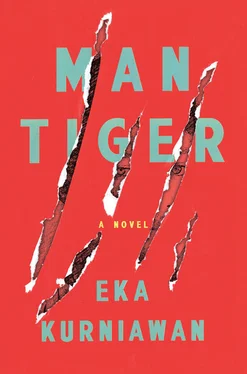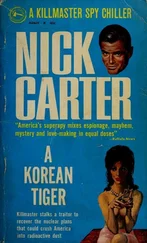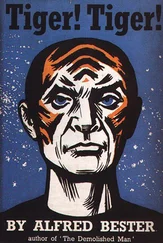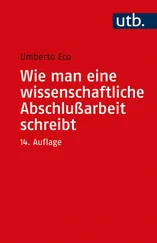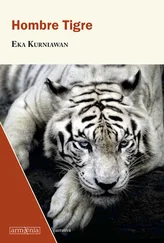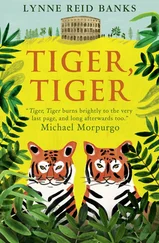Beaten down with fatigue, the gravedigger’s face was pale in the evening light. Margio was red with fury. They all looked at Kyai Jahro, who stood on an earthen mound, and he was chanting prayers in a low voice, begging the Judge to accept the body, for the living didn’t wish it to rot unburied. As he pursued his muffled prayers, leaves fell and the wind grew strong. The kyai closed his eyes, still moving his lips, then reopened them to stare at the body confined below. He turned to the crowd and said, “Bury him whatever way you can.”
They stuck Komar bin Syueb in there, not caring how tight the space was, the dead man curled into a crouch like a sleeping dog. Even Margio pitied him. Maybe that is what he deserves, thought the boy, gazing at a body that might have been doubled up in pain. He and the gravedigger wedged the body with clumps of earth so it couldn’t roll over. The pair planted the supporting planks, one by one, covering the contours of the white shroud. The planks served as a powerful barrier between the world of the living and the realm of the dead, where Komar bin Syueb was confined.
It was almost dark when the sandy red soil finally covered him. The gravedigger slowly stepped on this soil, but didn’t make it too compact, as a mandatory precaution lest the dead should be resurrected. Besides, it would make things easier if he had to dig there again. He embedded the tombstone, bearing the man’s name alongside that of his father, and spread tiny pebbles around it. Moved by a strange pang of pity, Margio planted a frangipani tree at one end of the grave, and scattered the remaining flower petals, which exuded the scent of roses, jasmine, and ylang-ylang. Komar bin Syueb was left there with the sea breezes and ghosts.
As the air became still, they returned carrying the empty casket, treading the path back home with hurried steps. Sweat poured down Margio’s forehead, but he wasn’t tired and his spirits began to lift. Again and again he told himself, “Think about it, the beast is dead, so now it is up to us how to live our lives.”
At home, Mameh told him their mother had slapped her, and Margio wondered if Komar bin Syueb had bequeathed his brutality to Nuraeni. When he heard Mameh’s explanation, he couldn’t help but stifle a laugh. Mameh’s suggestion was sound. It might be good for her to remarry. She was still young. How old now? Not even forty, Margio thought, too soon to be shelved away as a widow. He would support any man who wished to take her as a wife, provided he wasn’t like Komar and promised never to be cruel. Margio would do anything for Nuraeni’s peace of mind, and just like Mameh, he had thought of letting her remarry. That said, it was hardly proper to suggest it on the very day her husband was buried. No matter how much Nuraeni hated Komar, her daughter’s impudent mouth was just asking for a whack. Margio told Mameh that, as time passed, their mother would be cured of her craziness and she would be her old sweet self again.
Mameh wanted Margio to butcher Komar’s remaining chickens. He was reluctant at first, unable to comprehend why she would bother preparing a ritual meal for a man even the earth had rejected. He didn’t tell her what had happened at the cemetery, worried it would only add to her grief, but he was still disinclined to help her organize a prayer ceremony for the vilest man he had ever known. But Mameh insisted, reminding him that every human being needed prayers, and that Komar did leave a few chickens and rabbits behind. Margio relented and he slit their throats one by one as Mameh got things ready in the kitchen.
It reminded Margio of the times he would steal Komar’s chickens in petty revenge. Komar probably knew who the thief was, but by this point Margio was a young man in his late teens, and his father didn’t dare challenge him. Mameh certanly knew who the culprit was.
The chickens butchered, Mameh brought out a bucket of hot water in which to soak them. She got busy plucking, while in the kitchen the stove had been lit to heat the water for simmering the meat. The rice was ready, and it seemed that Mameh had cooked while everyone else had been at the Budi Darma cemetery. Nuraeni showed up in the doorway to watch what they were up to, exactly at the moment when Ma Soma started chanting the call to the dusk prayers from the surau. The expression on her face was cold. After Marian’s death she had become withdrawn, and now that Komar had fallen, she was even more reticent. Margio turned to look at her, and all he could do was beg the cosmos to give her a little taste of joy of the kind she had known when Marian was born.
The baby had been ailing since birth, its body no bigger than one of his calves, its head a bit larger. It had sunken cheeks and a protruding chin, and looked rather like a stick insect. Margio didn’t notice this at first, because the baby was kept tightly wrapped in red swaddling clothes and its little blanket gave the impression that it was fat. Then one morning Mameh came with a pail of lukewarm water and Nuraeni unwrapped the baby to reveal its miserable self. It no longer wailed before dawn, but just lay there with its eyes half closed.
“Looks like she’s going to die,” Nuraeni said.
Her breasts didn’t produce much milk, and what they did seemed drained by the baby’s first suckling. Kasia came late in the afternoon with bottled milk, but the newborn merely gave it a reluctant nip, parting and shutting her lips as the milk dribbled down her cheeks. Her breathing came in little gasps, sometimes she cried softly, but mostly she was quiet, as if it was written in the stars that she would grow up to be an obedient little girl. Margio sat in a chair beside his mother’s bed, anxiously observing the fragile little being, exchanging glances with Nuraeni and Mameh as they all wondered in their hearts if this creature would see another day.
Margio breathed in the damp, foul air of the room, still fetid from the birth. The wickerwork ceiling was stained with water. The whitewash was peeling, and up there the spiders persistently built their webs. A small reddish light bulb shone weakly. Clothes were piled up on the corner of the mattress and inside a basket. Mameh’s old school bag lay on the top of the cabinet and her unused shoes were stuffed under the bed. For Margio, circumstances had conspired to smother the little baby.
He stood up and asked for permission to open the windows. Nuraeni and Mameh were apparently of the same mind, and so Margio let in the light from the yard, and fresh air surged into the room bringing a little warmth and the scent of leaves, flowers, and loose soil. Spots of light landed on the baby, and Mameh moved the infant, fearing it would overheat. Yet the little one remained half asleep, as if unaware of the exquisite cosmos arriving to greet her.
“Looks like she’s going to die,” Nuraeni repeated. The woman’s sadness swept away any memory of the pleasure she had taken in this child. She had stopped chanting lullabies, and her hands no longer stroked the baby’s sparse hair. She was looking at it wistfully, perhaps knowing that the baby’s death was fated, and seeing how the little one’s soul was already departing from its body. Margio couldn’t bear to watch both the baby and its mother. He left the room and with it the process of death and the profound defeat of a despairing mother.
Komar bin Syueb had not come home that day, and Margio was seriously thinking of beheading him. Evidently he hadn’t gone to work, as the shaving kit was still in his room. But both his bike and his favorite purebred rooster had gone. Margio realized that the day before his father had left for the cockfighting arena in the ruins of the railway station, and God only knew where he had slept last night.
The station wasn’t far from House 131, just a few hundred yards to the rear. Margio was on his way there, with his hands sunk into his pockets. He passed a row of houses, nodded a short greeting when he ran into a friend, and took a shortcut through the brick factory until he arrived at the steel rails. For a long time the railroad had been out of use, its wooden planks decayed, its steel bars rusted, and part of it had drowned in a rolling sea of knee-high weeds. Some nearby households used the rails to dry out mattresses, while others did the same for rows of firewood, letting them bake in the heat. Still others would roll out their tarpaulins to shower their unhusked grains of harvested rice with sunlight. Herders let their sheep and cows graze on the wild grasses, yet the plants never perished since they grew faster than the animals could consume them.
Читать дальше
